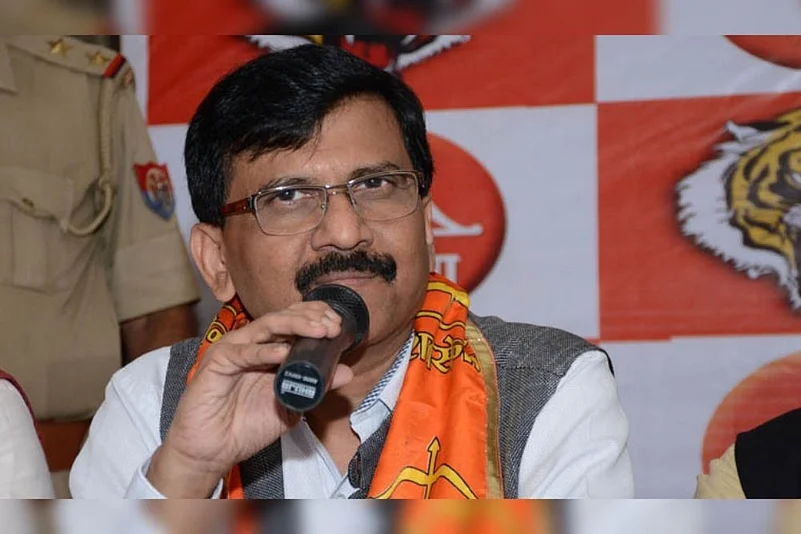Shiv Sena leader Sanjay Raut, prima facie, made defamatory statements against BJP leader Kirit Somaiya's wife Medha Somaiya, a Mumbai court held while issuing summons to the Sena leader in a defamation case filed by her.
Metropolitan Magistrate (Sewree court) P I Mokashi had issued summons to Raut on Thursday, and the detailed order was made available on Friday. The magistrate has directed the Sena leader to appear before the court by July 4.
The issuance of a process marks the beginning of criminal proceedings before a metropolitan or judicial magistrate based on a complaint lodged by an individual. Once the process is issued, the accused person has to appear before the court.
Somaiya, in her complaint, filed through advocate Vivekanand Gupta, has claimed Raut had made baseless and completely defamatory allegations against her and her husband, accusing them of being involved in a scam worth Rs 100 crore in the construction and maintenance of some public toilets under the jurisdiction of the Mira Bhayander Municipal Corporation.
"The statements made by the accused to the media are per se defamatory. The statements have been made to malign my character in the eyes of the general public," the complaint had stated.
She had urged the court to issue a notice to Raut and begin proceedings against him on the charges of defamation as defined under sections 499 and 500 of the Indian Penal Code.
The magistrate held that documents and video clips produced on record, prima facie, reveals the accused has made defamatory statements against the complainant (Medha) on April 15 and 16, 2022 so that it will be seen by the public at large and read by the public in the newspapers.
It is also, prima facie, proved by the complainant that words spoken by Raut were such that it has harmed the reputation of the complainant, the court said. Thereby, ingredients of section 500 is, prima facie, proved against the accused, the court added.
IPC section 499 pertains to defamation, while section 500 spells out punishment for the offence, which may be simple imprisonment for a term that may extend to two years or fine or both.
(With PTI inputs)


























